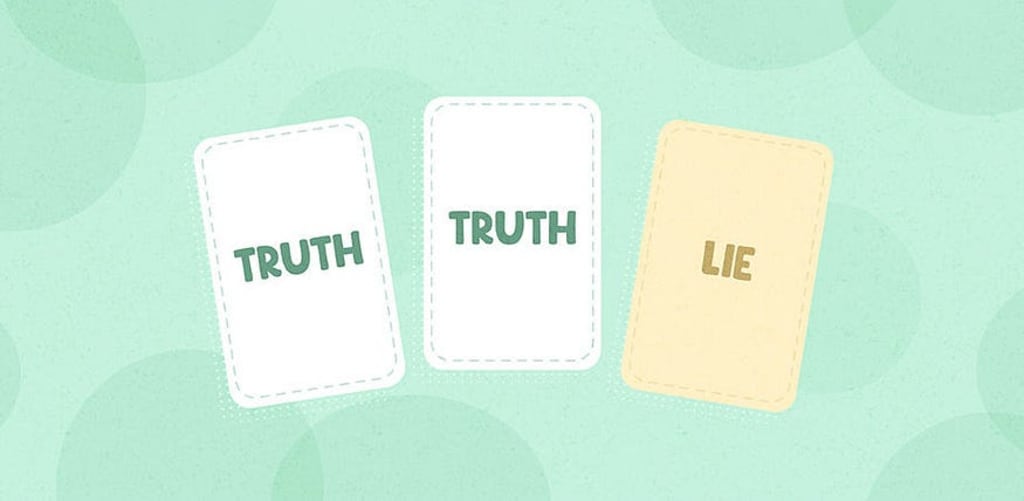Listening to the data
The truth often depends on the angle from which you are looking at things.

The truth often depends on the angle from which you are looking at things. In some instances the truth is based on the facts of the situation, in another instance it is based on the feelings of the persons, yet again in another instance it comes down to the timing of everything. This is to say that the truth is very much subjective and based on the person saying it, I know that this can’t be a general statement, but I say it because it happens so often I’ve gotten numb to it all.
There is a truth based on facts, countless experiments and the analysis of the results from all the data, then there is the truth which appeals to our emotions, the one which makes us feel good. In the end we all call that the truth even though it remains subjective.
Here is a simple example, if I asked you who was the best artist in the world, you would probably have somebody in mind which will be totally different from the person I have in mind. That’s simply because we have different basis for the definition of our truths. I might be looking at popularity while you’d be focused on the person who earned the most, or we might both choose the artist whom we like the most, at the end the truth becomes subjective.
I am really emphasizing for you to understand that our truth can frequently differ from each other simply because truth is subjective, and it depends on the angle you are looking from. An undeniable truth which is the same for everyone is when the assertion is very precise, for example; which artists had the most sales, that’s irrefutable. Now that I believe you’ve understood this core principle that “the truth depends on the angle from which you are looking at things”, I want to present to you then the different angles from which people consider things.
Emotional Angle
A great deal of our perception and what we could consider as “truths” is based on our emotional state, or at the very least biased by our emotions. I don’t necessarily understand the science behind it all, but our emotions do play a role in what we determine as our truths. The proof of this can be seen on a daily basis in the choices we make and the world all around us, for example; why did you choose to invest in that business? Why did you decide to go out that evening? Why did you take a left turn? It wasn’t just a decision based on the simple facts, but something influenced by emotions to a certain extent.
Listening to the data
Another angle from which truth can be approached is based on pure data, looking at what the facts say or the numbers and making the decisions based solely on this. In this case your emotions don’t get to play a role, if the data asks you to go left that’s what you do, and you move in ways which optimize this data in the best way possible. It's important to note here that sometimes the data might be in contradiction with our emotions.
To illustrate this, let's take a simple example; will increasing taxes be a good thing or a bad thing for the economy? In some instances, the answer is yes, but that's never a popular opinion or something people want. Quite the contrary, most people might tell you they don’t want any taxes or for it to be minimal. In such an instance, you see a clear example of how emotions and data can be in conflict with each other and how the decisions we make get impacted. In other instances, like for example when it comes to our health, we tend to prioritize data over our emotions. You listen to what the doctor says and, no matter how you feel about it, you prioritize the doctor’s opinion based on years of experience over your personal feelings.
Where the truth lies
There is “your truth” and there is “my truth”, unfortunately I can’t say “the truth” always lies in the middle because that’s simply not true (pun intended). What I can say is that there is “a truth” that people are willing to live with, one which often sees to it that they are always right. As long as their truth doesn’t affect the lives of others, then there isn’t much of a problem, but it gets complicated when people who prefer “a truth” over “the truth” are now in charge of other persons. Now, their limited perception based on a truth influenced by their emotions is sure to cause a lot of trouble for everybody.
Conclusion
The origin of this article is because I realized that what I considered to be “the truth” was actually “a truth” and that differed from that of others. I thought I was right, but my perception was biased by my emotions and likewise for the other person. The next question now comes down to how we can determine “the truth”.
About the Creator
real Jema
If you could say one thing and be heard by the entire world, what would that be?
Enjoyed the story? Support the Creator.
Subscribe for free to receive all their stories in your feed. You could also pledge your support or give them a one-off tip, letting them know you appreciate their work.






Comments
There are no comments for this story
Be the first to respond and start the conversation.